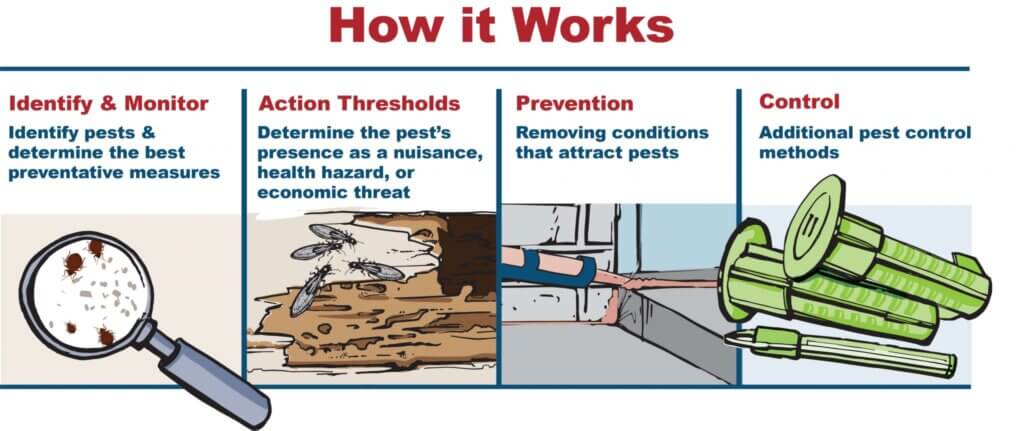A Biased View of Pest Control
Table of ContentsOur Pest Control Ideas4 Simple Techniques For Pest ControlEverything about Pest Control

When employing gentle insect control, services must follow the complying with principles: The desired advantages and downsides must be made clear. It must just obtain lugged out if its objectives can be met. The techniques that are most effective in achieving the objectives of the pest control program need to be employed.
Humane bug control is an approach to managing parasites that emphasizes non-lethal approaches to control and avoid problems - Pest Control. Numerous techniques can be utilized in humane pest control, including exemption, habitat modification, traps, and repellents. Exemption is a technique used to stop pests from getting in a home or building by securing off all feasible access points
Exclusion is a critical technique in humane insect control since it stops the requirement for dangerous insect control methods by maintaining insects out to begin with. Habitat adjustment is an additional technique utilized in gentle insect control. That involves making modifications to the atmosphere to make it much less hospitable to insects.
Getting The Pest Control To Work

These traps are baited with food or scents and capture pests securely and humanely. Repellents are another technique used in humane bug control.
Conduct a thorough evaluation of your consumer's building, looking for a knockout post indications of bugs such as droppings, damage to structures, and sightings of real-time insects. Once they are recognized, Web Site a humane insect control strategy can be created. Integrated Parasite Management (IPM) is an approach to pest management that highlights multiple methods to regulate and stop insect problems.

These advantages include environmental advantages, possible expense financial savings for consumers over the long term, and enhanced credibility monitoring for bug control businesses that make use of gentle approaches. Among the primary benefits of humane insect control is its positive environmental impact. Typical bug control approaches frequently rely on damaging chemicals that can damage the setting and human health.
6 Simple Techniques For Pest Control

It can amount to substantial prices over time. Humane insect control, on the various other hand, emphasizes avoidance and ongoing tracking to maintain a pest-free setting (Pest Control). Dealing with the origin of parasite problems and taking proactive actions to protect against future problems can see lower the need for recurring therapies and potentially conserve your clients money in the long term.
Here are several of the most common inquiries and responses concerning making parasite control humane. Yes, humane insect control can be very reliable when executed properly. By attending to the source of bug problems and taking positive procedures to protect against future infestations, gentle pest control can regulate pest populations without relying upon hazardous chemicals.
Nevertheless, over the long-term, humane pest control can be a lot more economical than standard techniques as it emphasizes prevention and continuous surveillance to preserve a pest-free environment. Yes, gentle bug control approaches can be used for a broad variety of insects, including rodents, pests, and wild animals. Nevertheless, the particular techniques for wildlife elimination may vary depending on the type of parasite and the extent of the infestation - Pest Control.